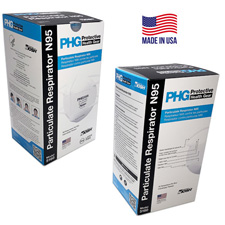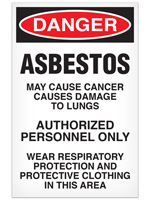| The Home page of ILPI's Safety Data Sheet (SDS) Resource, the leader in SDS information since 1995! | |
| The history and philosophy behind this resource. | |
| A curated collection of books and reference materials concerning Safety Data Sheets and closely related topics. | |
| Paste your plain text SDS into the SDS-Demystifier, and it will be converted into a hypertext-enriched document with links to detailed explanations of each key term. | |
| An extensive list of frequently asked questions about Safety Data Sheets including regulations, content, compliance, and more. | |
| A humorous take on Safety Data Sheet jargon. Fill in the blanks on our entry form to generate a personalized Unsafety Data Sheet to share with your coworkers. | |
| Since 1995, we've maintained this massive curated list of the best places to find Safety Data Sheets on the Internet. | |
| You are here! Way more than a glossary, this hypertext-enhanced resource covers hundreds of SDS-related terms and expert knowledge. Each entry includes both the SDS relevance and links to additional authoritative resources. | |
| Archived results of Safety Data Sheet related polls taken by some of our millions of site visitors | |
| The OSHA regulations behind SDS regulations, including the inspection guidelines and over 400 official interpretations letters under the Hazard Communication Standard | |
| Commercial suppliers of SDS authoring and management software as well as cloud compliance services. | |
| Commercial companies that will create SDS's for your specific needs as well as SDS translation companies. |

Safety signs, banners, and scoreboards? Get yours at Safety Emporium!
Definition

Get your PPE such as made in USA NIOSH-approved N95 masks from Safety Emporium.
The Registry of Toxic Effects of Chemical Substances (RTECS) is a toxicology database of over 191,000 chemicals compiled, maintained, and updated by the U.S. National Institute of Occupational Safety and Health (NIOSH). Its goal is to include "all known toxic substances... and the concentrations at which... toxicity is known to occur".
The acronym also stands for "Residential Transportation Energy Consumption Survey" by the US Department of Energy, which was discontinued in 1994. It is unlikely that RTECS ever appeared on a Safety Data Sheet in this context.
Additional Info
RTECS was mandated by the same act that created the U.S. Occupational Safety and Health Administration (OSHA). It was originally called the Toxic Substances List. RTECS data is obtained from the open scientific literature and maintained by NIOSH.
Unlike many other government databases, RTECS is only available from vendors (if you dislike this, which you should, consult your congressional representatives). NIOSH has additional info and a vendor list if you would like access to the database. That page is a bit out of date, with several of the vendors having undergone consolidation. We were unable to find any firm that publicly posts its current pricing.
Books Available
NOTE: We may collect a share of sales or other compensation from the links in the following list:
- "The Complete Guide to Hazardous Waste Regulations: RCRA, TSCA, HTMA, EPCRA, and Superfund, 3rd Edition", Hardcover, 560 pages, 1999. Estimated price $165.00. Info and/or order.
- "Environmental Law Handbook, 23rd Edition", Hardcover, 1170 pages, 2016. Estimated price $75.52. Info and/or order.
- "Registry of Toxic Effects of Chemical Substances (RTECS): Comprehensive Guide to The RTECS", Paperback, 190 pages, 2013. Estimated price $22.75. Info and/or order.
SDS Relevance

Signs, training materials and supplies from Safety Emporium can help ensure a safe and healthy workplace.
RTECS data can be used to help you construct a Safety Data Sheet. Six types of toxicity data are included in the file:
- primary irritation
- mutagenic effects
- reproductive effects
- tumorgenic effects
- acute toxicity
- other multiple dose toxicity, including LD50 and LC50 values.
Further Reading
- Availability of NIOSH registry of toxic effects of chemical substances (RTECS)(Non-mandatory) is Appendix B of the OSHA Access to employee exposure and medical records Standard.
- Features of the RTECS Database at NIOSH.
- The NIOSH RTECS vendor list.
- Further info and some example entries at CAS.
- The Biovia's Toxicity Database incorporates RTECS along with the EPA's GENE-TOX and NCI's Chemical Carcinogenesis Research Information System Database.
See also: EPCRA and the hyperlinks above.